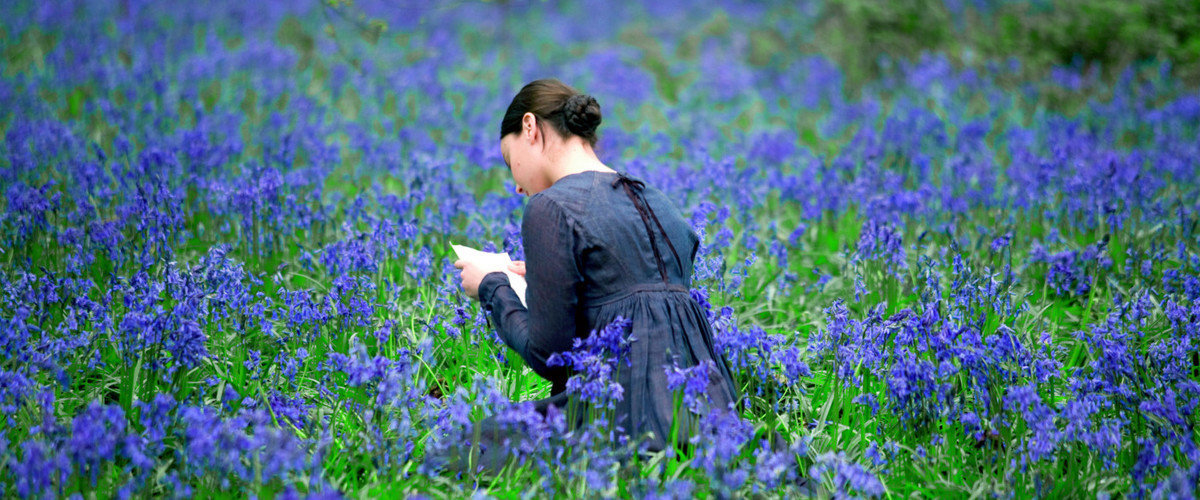
Poetry in film can be a tricky thing. Often when something is described as “poetic” in cinema, it can refer to either the sweeping cinematography of a Terrence Malick or Peter Jackson epic, or it can refer to a contrived storyline about fathers and sons over multiple generations with plenty of Biblical allusions and a whole lot of death and misery.
More often than not, poetry in cinema is used to advance a plot or lend some deeper significance to an event where the protagonist is faced with a dilemma.
Something like Steven Soderbergh’s Solaris, for example, where Dylan Thomas’s ‘And Death Shall Have No Dominion’ serves as a kind of refrain for George Clooney’s character undergoing a personal crisis in the heart of deep space; or Four Weddings and a Funeral, where W.H. Auden’s ‘Funeral Blues’ (shock of shocks) is read at the funeral service of one of the film’s deceased main characters.
What this list serves to do is examine the best that cinema has to offer poetry as a subject, and since so many excellent movies have been made in recent years that manage to treat the topic seriously, it seemed as good a time as any to set it out before you. Enjoy.
10. Kill Your Darlings (Dir: John Krokidas, 2013)
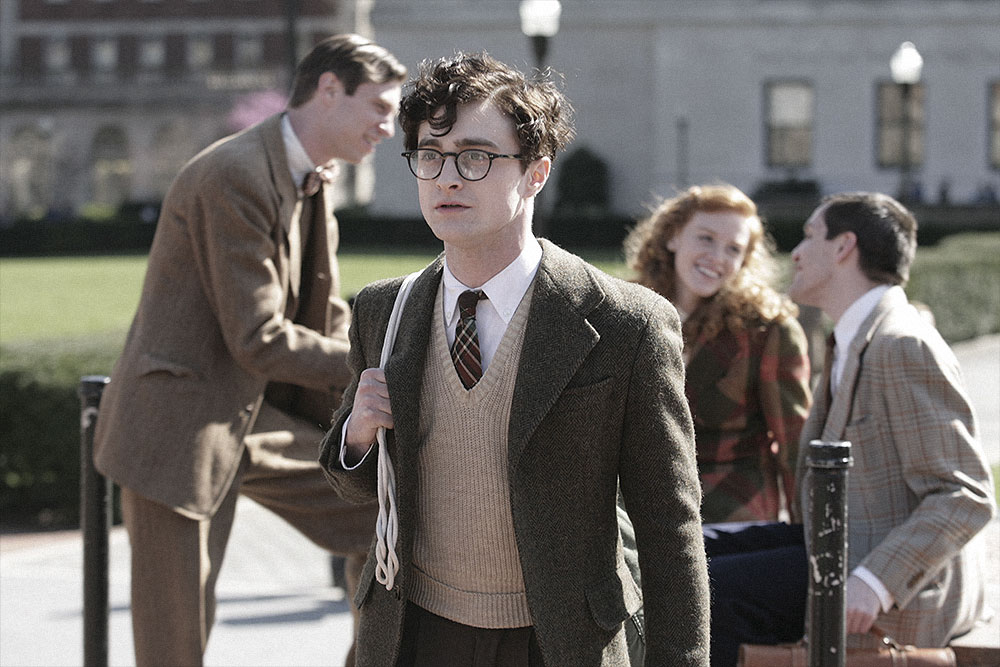
Though this take on the formative years of the Beat core at Columbia University focuses mainly on the uninhibited nature of Lucien Carr (Dane DeHaan), Kill Your Darlings offers some welcome insight into Allen Ginsberg’s development from awkward teenager into 20th Century Walt Whitman. Daniel Radcliffe gives a tempered and, at times, humorous take on the early Ginsberg and works hard to immerse his audience in the repressed and lonely nature of his writing.
Rockstar Beats flit in and out of view throughout the film – Jack Kerouac (Jack Huston), William S. Burroughs (Ben Foster) – but so well integrated are they into the scenery of 1940’s New York that they almost never distract from the central drama of Ginsberg and Carr.
The film very much hinges on the repressed sexual tension between the two friends, and when an event takes place that almost wrenches their circle apart, you can feel the palpable distance between Dane DeHaan and Daniel Radcliffe extending off-screen, so convincing are their performances. This is a must-watch for anyone even remotely interested in this period of American literature.
9. Bright Star (Dir: Jane Campion, 2009)
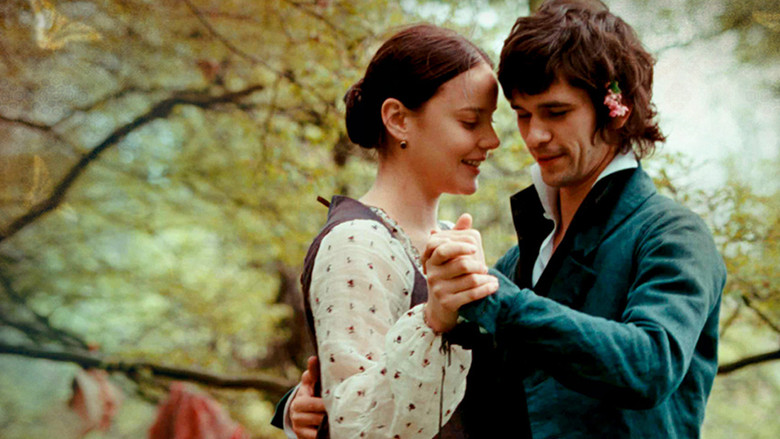
Based on Andrew Motion’s authoritative 1997 biography of John Keats, Bright Star focuses on the final three years of the Romantic poet’s life and, in particular, on his love affair with the fashionable socialite Fanny Brawne.
At the height of Keats’s burgeoning success, the eighteen year old Brawne engages in flirtatious pursuit of the poet after reading one of his most popular books, ‘Endymion’. Keats, at first, rejects the young girl’s advances but the two gradually become closer as the story develops and Brawne features more and more regularly as an inspiration for his poetry.
There is much more to the film than that, of course, and it would be tempting to dismiss this as a straightforward period romance. But Campion’s take on an important period in Keats’s development provides much insight into the nature of inspiration, and there is much to admire in the dedicated performances of both Ben Whishaw (as John Keats) and Abbie Cornish (as Fanny Brawne) to sustain a thoughtful few hours of cinema.
8. Endless Poetry (Dir: Alejandro Jodorowsky, 2016)
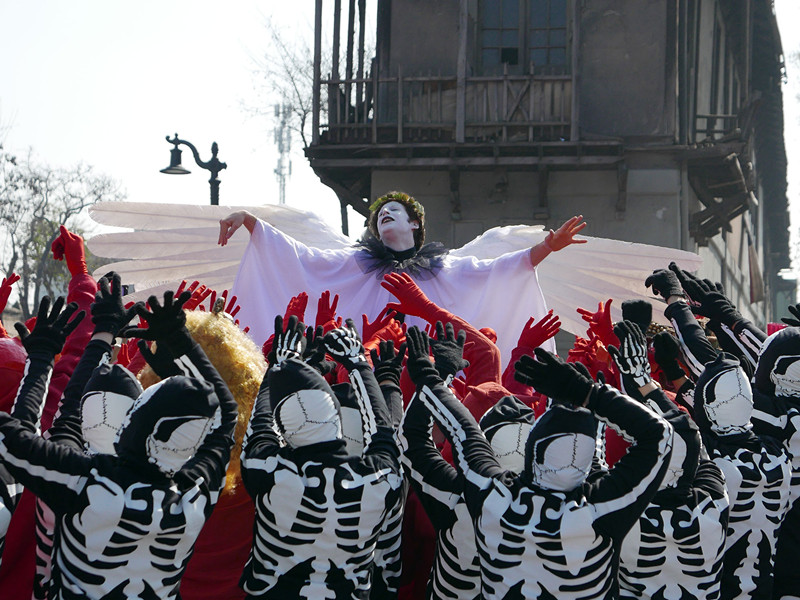
The second cinematic outing in a planned five-part autobiography, Alejandro Jodorowsky’s Endless Poetry is a delightful recounting of the director’s teenage years in 1940’s Santiago. Played by Jodorowsky’s real-life son, Adan, the film explores the very real challenge of expressing one’s self in the midst of repression and poverty.
Whether facing repression at home from an autocratic shop-keeping father, or facing the wider repression of a society under the auspices of fervent Nationalism, the young Jodorowsky battles his way with humour and optimism toward self-expression; first as a puppeteer, next as a clown, next as a poet and finally as would-be saviour of surrealist art.
Along the way he gets into trouble for his rebellion, with scenes wonderfully shot by Christopher Doyle who does an excellent job of exposing the absurdity (and, indeed, irony) of the surrealist spectacle of Fascism. The poetry for Jodorowsky exists in the struggle to become himself, and though there are sometimes miserable ruminations along the way, like all great artists he encourages his viewers to triumph through perseverance. And what could be more optimistic than that?
7. Howl (Dir: Rob Epstein & Jeffrey Friedman, 2010)
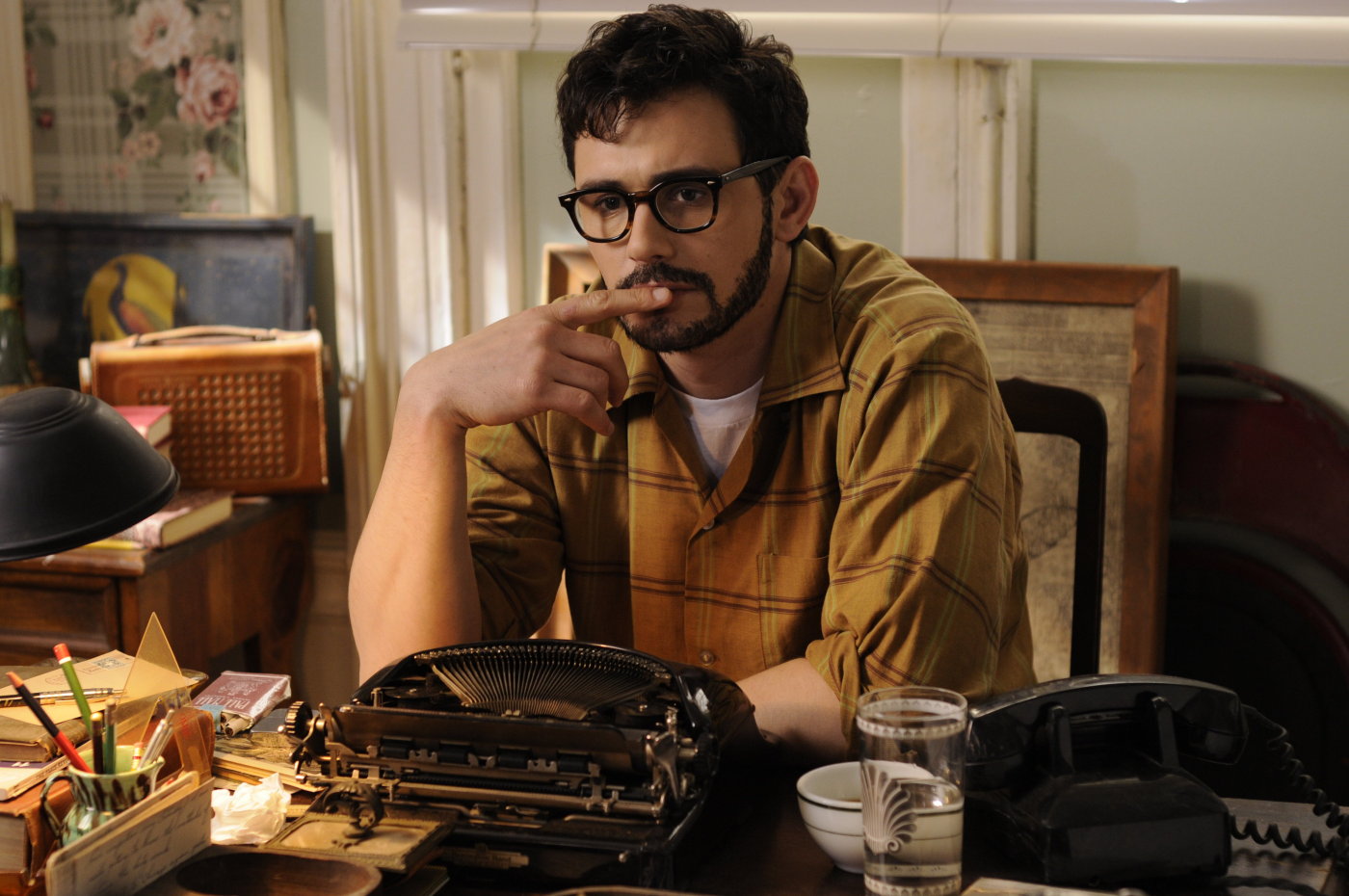
This is the second remarkable take on the Allen Ginsberg character to have made it into this list, and indeed is the best. Played with real attention to detail by James Franco – right down to the frenetic, nasal tone of voice – 2010’s Howl focuses on “the literary trial of the century”, when, much like DH Lawrence’s ‘Lady Chatterley’, Allen Ginsberg’s epic book-length poem was the subject of an obscenity trial.
Scenes from the courtroom are interspersed brilliantly with flashbacks and animated representations of the poem’s conception, reading and eventual publication by Lawrence Ferlinghetti in 1956. The trial took place the following year and is contextualised well by the film as the moment when “Beat” culture went mainstream.
It may not hold much interest for anyone who isn’t a fan of the 1950’s/ 1960’s period in American literature, but for Beat aficionados it’s definitely worth checking out; especially if you want some real insight into Ginsberg’s creative process.
6. Neruda (Dir: Pablo Larraín, 2016)
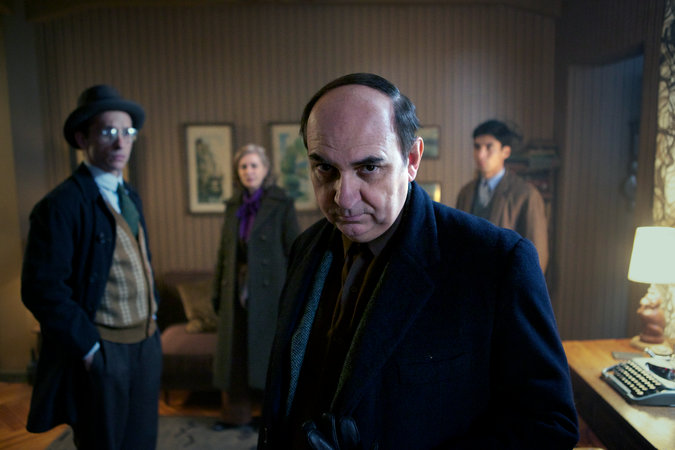
Like many poets who have risen gradually through the decades to the status of “icon”, Pablo Neruda’s life is almost as interesting as his work. Radicalized by the tyranny of the Francoist regime in 1930’s Spain – and by the murder of his friend and surrealist poet Federico Garcia Lorca in particular – Neruda spent most of his life in Chile fighting the good fight in the name of leftist ideals.
It is surprising then that Pablo Larraín chose to shift the focus slightly from Neruda himself to a fictional police investigator named Oscar Peluchonneau, who is dispatched to destroy the poet’s reputation after he makes a speech in 1948 denouncing the Chilean president.
The gamble seems to have paid off though, and in both Luis Gnecco and Gael Garcia Bernal – who play policeman and poet respectively – there is a restraint and deference in their performances, and in the way which Larraín approaches his subject. Neruda the film, it might even be said, is paced much in the same way as one of Neruda’s poems: quiet, brooding and with a sometimes plodding sense of menace.